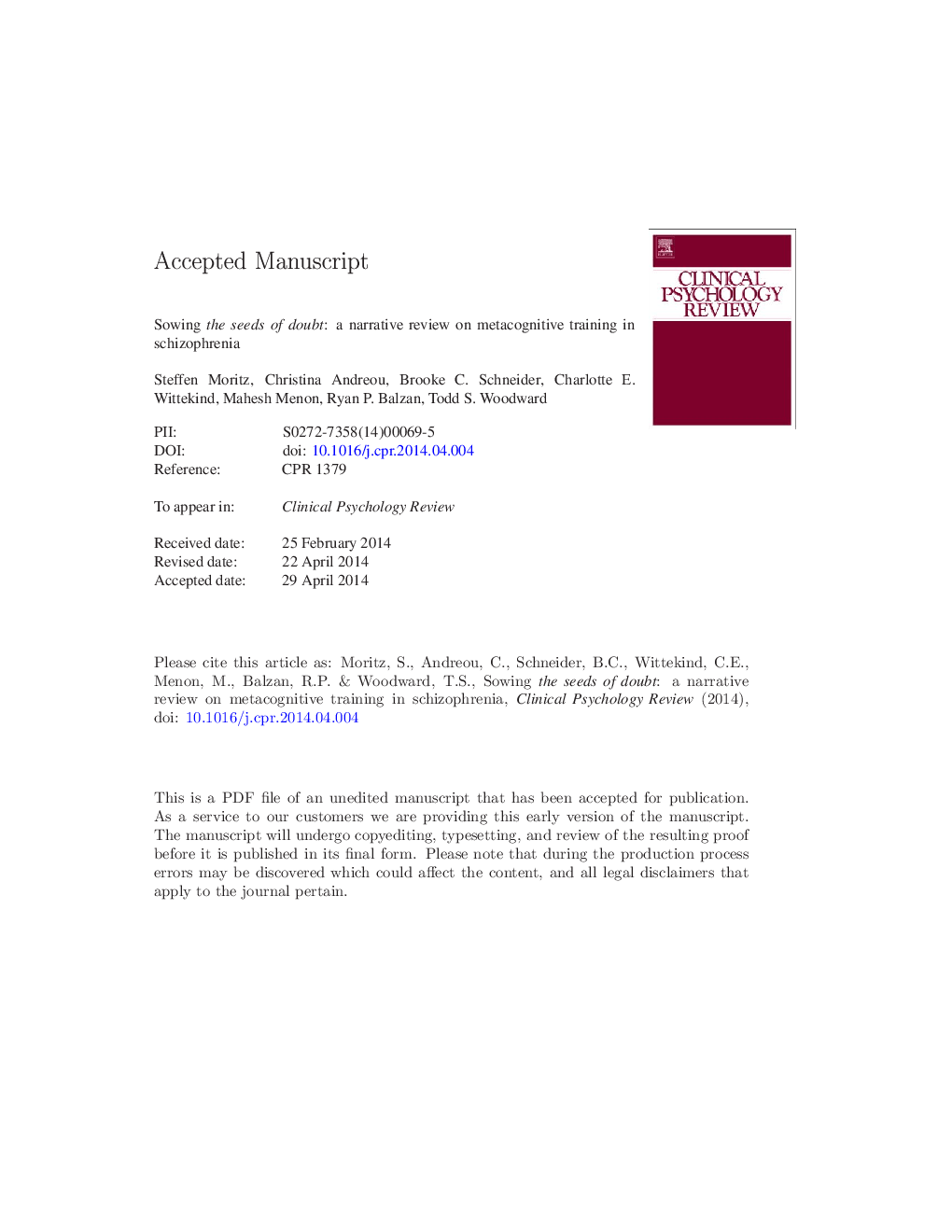| Article ID | Journal | Published Year | Pages | File Type |
|---|---|---|---|---|
| 10445700 | Clinical Psychology Review | 2014 | 26 Pages |
Abstract
The present article provides a narrative review of empirical studies on metacognitive training in psychosis (MCT). MCT represents an amalgam of cognitive-behavioral therapy (CBT), cognitive remediation (CRT) and psychoeducation. The intervention is available in either a group (MCT) or an individualized (MCTÂ +) format. By sowing the seeds of doubt in a playful and entertaining fashion, the program targets positive symptoms, particularly delusions. It aims to raise patients' awareness for common cognitive traps or biases (e.g., jumping to conclusions, overconfidence in errors, bias against disconfirmatory evidence) that are implicated in the formation and maintenance of psychosis. The majority of studies confirm that MCT meets its core aim, the reduction of delusions. Problems (e.g., potential allegiance effects) and knowledge gaps (i.e., outcome predictors) are highlighted. The preliminary data suggest that the individual MCT format is especially effective in addressing symptoms, cognitive biases and insight. We conclude that MCT appears to be a worthwhile complement to pharmacotherapy.
Related Topics
Health Sciences
Medicine and Dentistry
Psychiatry and Mental Health
Authors
Steffen Moritz, Christina Andreou, Brooke C. Schneider, Charlotte E. Wittekind, Mahesh Menon, Ryan P. Balzan, Todd S. Woodward,
